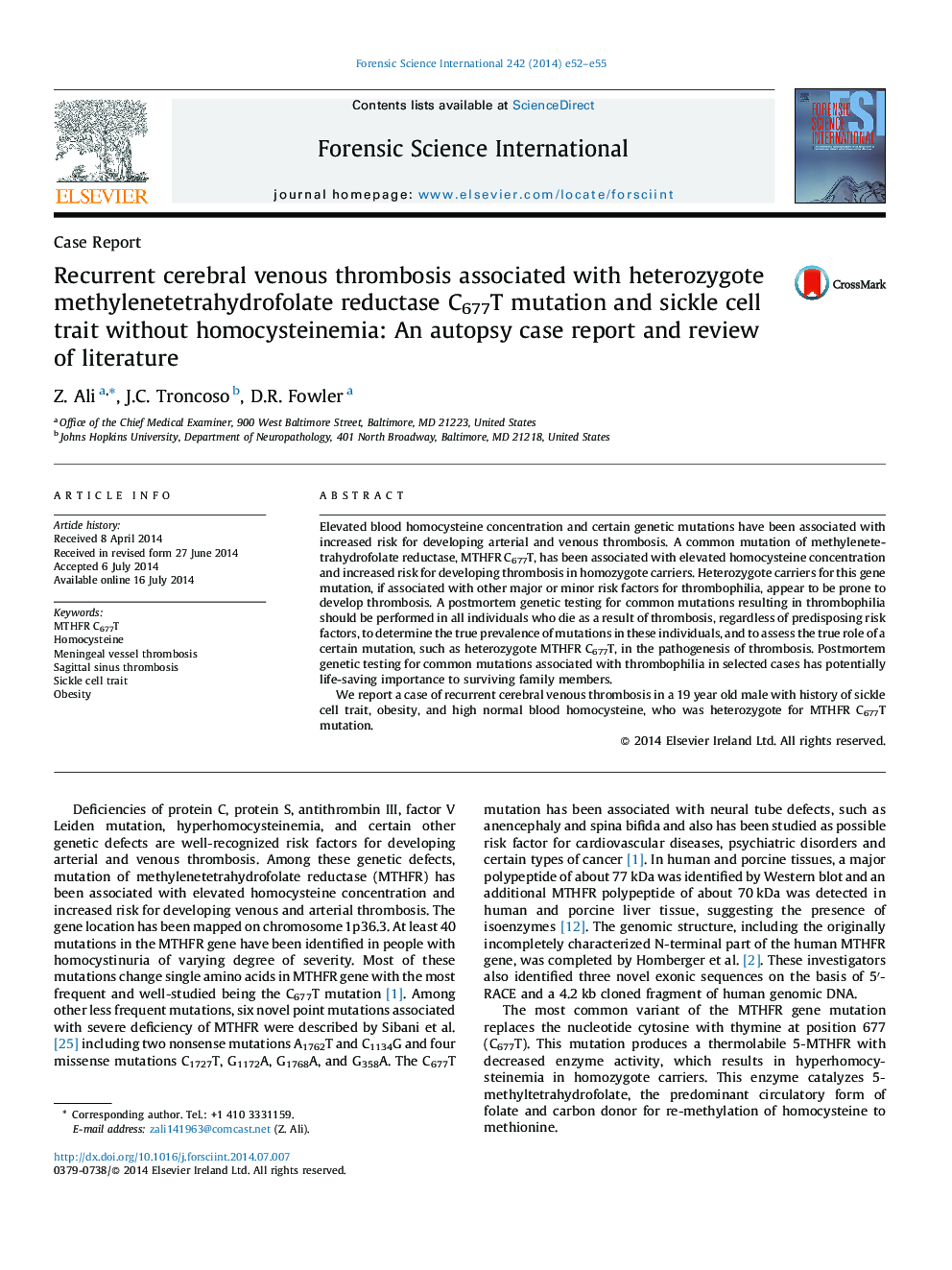| Article ID | Journal | Published Year | Pages | File Type |
|---|---|---|---|---|
| 95495 | Forensic Science International | 2014 | 4 Pages |
•MTHFR mutation increases the risk for thrombosis, if associated with minor or major risk factors for thrombophilia.•To date, 40 mutations of MTHFR gene have been identified.•Postmortem genetic testing in cases of thrombosis has potentially life-saving importance.•C677T and G20210A are the most common mutations.
Elevated blood homocysteine concentration and certain genetic mutations have been associated with increased risk for developing arterial and venous thrombosis. A common mutation of methylenetetrahydrofolate reductase, MTHFR C677T, has been associated with elevated homocysteine concentration and increased risk for developing thrombosis in homozygote carriers. Heterozygote carriers for this gene mutation, if associated with other major or minor risk factors for thrombophilia, appear to be prone to develop thrombosis. A postmortem genetic testing for common mutations resulting in thrombophilia should be performed in all individuals who die as a result of thrombosis, regardless of predisposing risk factors, to determine the true prevalence of mutations in these individuals, and to assess the true role of a certain mutation, such as heterozygote MTHFR C677T, in the pathogenesis of thrombosis. Postmortem genetic testing for common mutations associated with thrombophilia in selected cases has potentially life-saving importance to surviving family members.We report a case of recurrent cerebral venous thrombosis in a 19 year old male with history of sickle cell trait, obesity, and high normal blood homocysteine, who was heterozygote for MTHFR C677T mutation.
